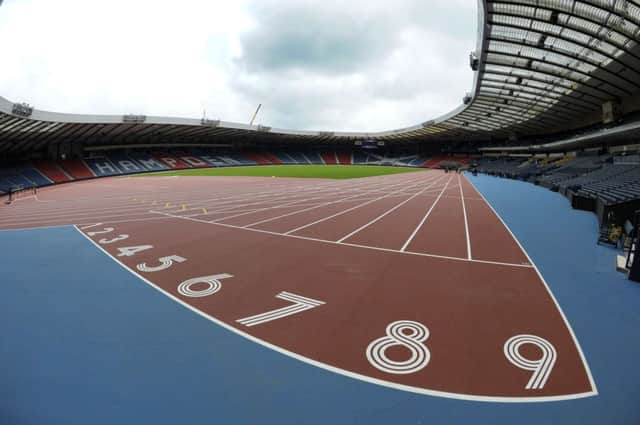Trade carefully around Glasgow Commonwealth Games


Like other major international sporting events in recent years, the XX Commonwealth Games brings with it specific regulation. For any business considering conducting activities connected with the Games, or in the vicinity of Games locations, it is important to ensure that this regulation is properly understood.
The Glasgow Commonwealth Games Act 2008 sets the broad framework for control of street trading and advertising within Games locations. Simply, it states that street trading or advertising in the vicinity of a Games location during Games time is not permitted, unless authorised by the Organising Committee or falling within certain exemptions. The 2008 Act is supported by the Glasgow Commonwealth Games (Trading and Advertising) (Scotland) Regulations 2013.
Advertisement
Hide AdAdvertisement
Hide AdThese regulations provide the “nuts and bolts” of operation of the street trading and advertising restrictions set down in the 2008 Act. They define what lies within the vicinity of a Games location, by reference to a set of maps. These maps cover Games venues themselves, the environs of such venues, and areas which are to be used in the Games cultural programme.
Frontages of buildings which lie along the edge of the zones are included, as are frontages which are visible from the defined zones, but which do not lie within these zones. This restriction has been included to address building wraps, projection and such like. The defined zones also include the road surface, utilised in road events such as cycling and the marathon. Further, the regulations also define the period during which restrictions apply. These periods differ for each defined zone, and can cover both the run-up to events as well as the period of events themselves.
The regulations additionally define, very widely, what is captured by the restriction. Simply put, from a street trading perspective, any activity which is carried out for gain (whether directly or indirectly) falls within the scope of the restriction – including charitable collection and the provision of entertainment. From an advertising perspective, the regulations are equally all-encompassing, covering the use of traditional means of promotion, but also methods of marketing such as giveaways, and ambush marketing.
The regulations do, however, seek to strike a balance with the interests of existing business, through specifying certain exemptions. In the context of street trading, activities such as the sale of current newspapers is in certain circumstances exempted, as is the continued conduct of pre-existing and consented outdoor trade from land adjacent to an existing retail premise. Existing retail premises (as defined) include petrol stations, bars and restaurants. The continued operation of car washes and car lots is generally permitted. Deliveries of goods are allowed. The provision of public transport services is permitted, although the operation of pedicabs and rickshaws within the defined zones is restricted.
With street trading, it is important to note that the holding of a licence does not provide a defence. It is also important to note that even though a trade may be exempted, the advertising restriction will still apply. Separate exemptions apply in this respect.
The 2008 Act and the regulations, one must remember, are only part of the legislation applicable to the Games. It is not the case that if one is carrying out activities out with restricted locations and times, one is free to do what they wish. A significant additional piece of legislation is to be found in the form of The Glasgow Commonwealth Games Act 2008 (Games Association Right) Order 2009. Simply put, the Order creates the exclusive right for the Organising Committee to authorise persons to associate themselves, or their products, with the Games, or rather, if someone associates themselves, or their products, with the Games without authorisation it is a breach of the right provided by the Order. The Order does provide certain exceptions from infringement. These are similar to (but, importantly, not exactly the same as) the exemptions from infringement set down under the law relating to registered trade marks. If one wants to rely upon the exemptions it is an area where specific experienced legal advice is to be highly recommended.
As one would expect, lack of knowledge of the law is not a defence to infringement. The Organising Committee, in the interests of simplifying matters for business, makes available extensive guidance upon its website www.glasgow2014.com, which should be referred to. Alternatively qualified advice should be sought.
• Jamie Watt is a partner at Harper Macleod LLP, legal advisers to the Glasgow 2014 Commonwealth Games and specialises in intellectual property. www.harpermacleod.co.uk
SEE ALSO